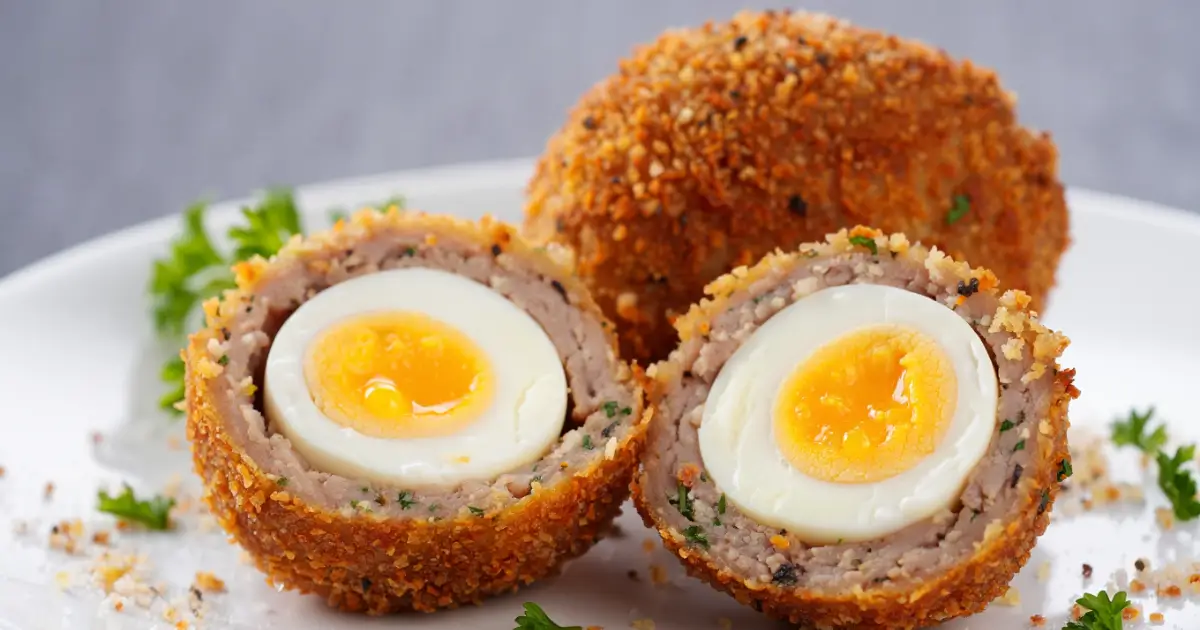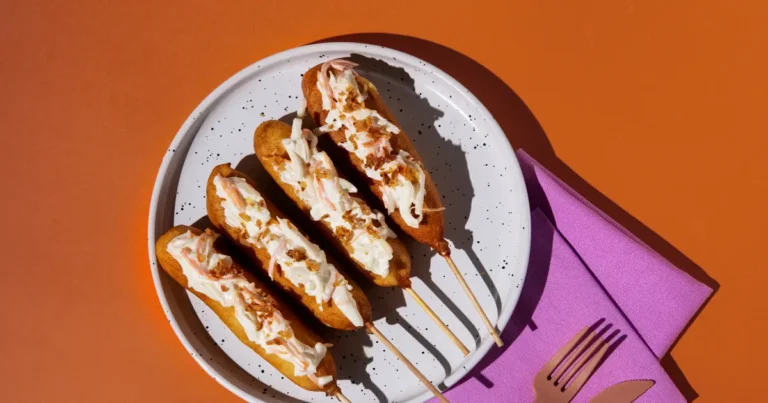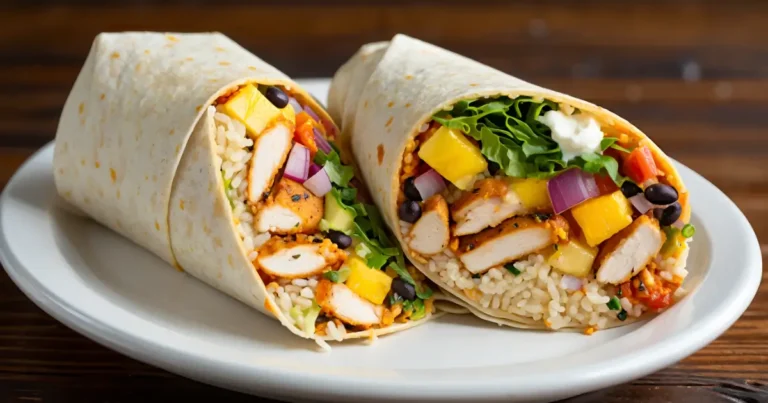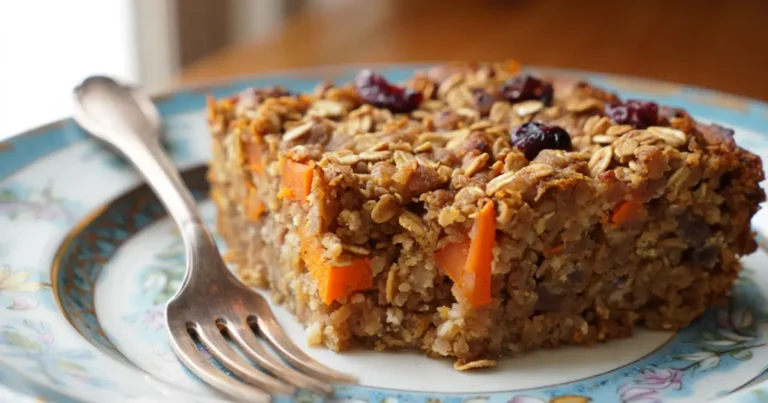Easy Homemade Scotch Eggs Recipe
If you’re looking to impress at breakfast, brunch, or even as a hearty snack, Scotch Eggs are your golden ticket. This delicious British classic combines a perfectly boiled egg encased in savory sausage meat, coated in golden breadcrumbs, and fried to crisp perfection. It’s a portable, protein-packed comfort food that never goes out of style—and once you try this homemade version, you’ll never settle for store-bought again.
Whether you’re making them for a picnic, a party, or just a satisfying meal at home, Scotch Eggs are surprisingly easy to put together—and I’m going to walk you through every single step. Get ready for a crispy outside, tender sausage middle, and that creamy egg yolk in the center. Let’s make it happen!
Table of Contents
Ingredients for Homemade Scotch Eggs
Here’s everything you’ll need to make six large Scotch Eggs from scratch. Feel free to tweak the spices or swap ingredients as needed—I’ll give you tips below!
For the eggs:
- 6 large eggs (plus 2 extra for coating)
- Water for boiling
- Ice water (for the ice bath)
For the sausage layer:
- 500g (1.1 lbs) ground meat sausage
- 1 teaspoon salt
- 1/2 teaspoon black pepper
- 1 teaspoon onion powder
- 1 teaspoon garlic powder
- 1/2 teaspoon smoked paprika
- 1/4 teaspoon cayenne pepper (optional for heat)
- 1 tablespoon chopped fresh parsley (optional)
For breading:
- 1/2 cup all-purpose flour
- 2 large eggs, beaten
- 1 1/2 cups breadcrumbs (Panko works great for extra crunch)
- Oil for deep frying (vegetable or canola oil recommended)
Step-by-Step Instructions to Make Scotch Eggs
1. Boil the eggs
Let’s start with the core of your Scotch Egg—the egg itself.
- Place the 6 large eggs in a saucepan and cover with cold water.
- Bring to a boil over medium-high heat.
- Once the water starts boiling, set a timer:
- 6 minutes for soft-boiled with a slightly runny center
- 8-9 minutes for fully hard-boiled
- Immediately transfer eggs to an ice water bath to stop cooking.
- Once cooled (about 5 minutes), peel the eggs gently and pat dry.
Tip: Slightly older eggs are easier to peel than super fresh ones!
2. Make the sausage mixture
In a large bowl, mix together:
- Ground meat sausage
- Salt, pepper, onion powder, garlic powder, paprika, cayenne, and parsley
Knead it lightly with your hands or a spoon until everything’s evenly combined. Don’t overmix, or it can get tough.
3. Wrap the eggs
This part can be a bit messy but stay with me—it’s worth it.
- Divide the sausage mix into 6 equal portions.
- Flatten each portion into a disk (roughly the size of your palm).
- Place a peeled egg in the center and gently mold the sausage around it until fully sealed.
Tip: Wet your hands slightly to keep the meat from sticking while shaping.
4. Prepare the breading station
Set up three shallow bowls:
- Bowl 1: All-purpose flour
- Bowl 2: 2 beaten eggs
- Bowl 3: Breadcrumbs
Roll each sausage-covered egg in the flour, dip in the egg wash, and then coat evenly with breadcrumbs.
Want an extra crunchy coating? Double dip:
- After breadcrumbs, dip again in the beaten egg and re-roll in breadcrumbs.
5. Fry the Scotch Eggs
Safety first: Use a deep-frying thermometer if you have one.
- Heat oil in a deep saucepan or fryer to 170–180°C (340–360°F).
- Carefully lower 2–3 eggs into the oil at a time—don’t overcrowd.
- Fry for 5–7 minutes, turning occasionally, until golden brown and cooked through.
- Remove with a slotted spoon and place on a paper towel-lined plate to drain.
Baking option: Preheat oven to 200°C (400°F). Place the breaded eggs on a wire rack over a baking sheet and spray lightly with oil. Bake for 30–35 minutes, turning halfway through, until crispy.
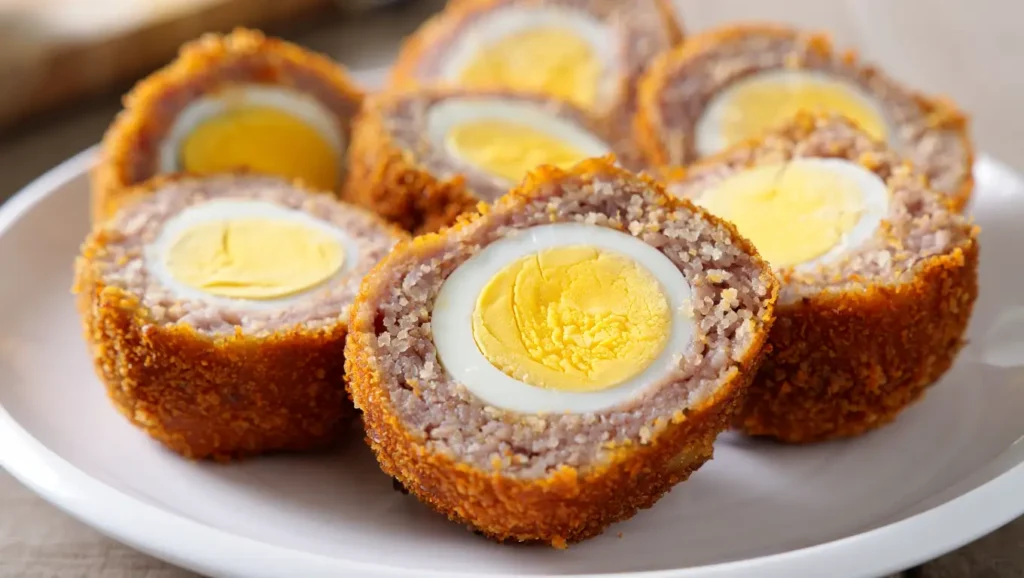
Tips, Variations, and Substitutions
Perfecting the yolk
If you love a runny center, go with a soft-boiled egg (6 minutes). For picnic-friendly or make-ahead versions, hard-boiled works better and is less fragile.
Try different meats
- Swap meat with ground chicken, turkey, or even a meatless sausage alternative.
- Add grated cheddar or crumbled cooked bacon to the sausage mix for a flavor twist.
Crust options
- Use Panko breadcrumbs for an extra-crunchy texture.
- Prefer a rustic look? Try crushed cornflakes instead.
- Gluten-free? Use almond flour for dredging and gluten-free breadcrumbs.
Seasoning ideas
Spice it up with curry powder, Italian herbs, or even a splash of Worcestershire sauce in the sausage mixture.
How to Serve Scotch Eggs
Scotch Eggs are super versatile, so serve them however you like:
- Hot: With a side of mustard or spicy ketchup
- Cold: Sliced with a fresh green salad or as part of a picnic spread
- Brunch-style: With toast soldiers and a creamy dip
- Pub-style: With fries and a pint (if that’s your thing)
How to Store and Reheat
Storing
- Fridge: Store cooled Scotch Eggs in an airtight container for up to 4 days.
- Freezer: Wrap individually in plastic wrap and freeze for up to 2 months. Thaw in the fridge before reheating.
Reheating
- Oven: Bake at 180°C (350°F) for 10–15 minutes until warmed through.
- Air fryer: 5–6 minutes at 180°C (350°F) works beautifully.
- Avoid microwaving if you want to keep the coating crispy.
Nutrition Info (per Scotch Egg – approximate)
- Calories: 370–450
- Protein: 20g
- Fat: 28g
- Carbs: 12g (depends on breadcrumb coating)
- Fiber: 1g
Note: These numbers vary depending on sausage type and frying method.
Recipe Summary
- Prep Time: 20 minutes
- Cook Time: 20 minutes
- Total Time: 40 minutes
- Servings: 6 Scotch Eggs
Final Thoughts
If you’ve never tried making Scotch Eggs at home, now’s the perfect time to give it a go. They’re satisfying, flavorful, and incredibly versatile—plus, once you get the hang of wrapping and frying, the possibilities for customization are endless.
Whether you’re prepping for a brunch buffet or looking to elevate your snack game, Scotch Eggs are a guaranteed crowd-pleaser. And with these tips, tricks, and variations, you can tailor them to fit your taste perfectly.
Grab your eggs, fire up the oil, and let’s make a batch worth bragging about. Happy cooking!

